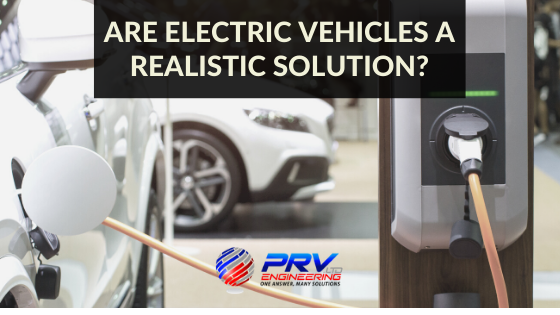
The Current State Of Electric Vehicles
Tesla has been in the news for several reasons but one way or another, the company has done well in developing and launching electric vehicles across the globe. In the UK alone, the Tesla Model 3 has surpassed sales figures of the Ford Focus becoming the UK’s third bestselling car in August 2019.
However impressive this achievement, it doesn’t change the fact that only 1.1% of all new cars sold in the UK during 2019 were electric. Should this be a cause for concern with the UK’s goal to end the sale of new petrol, diesel and hybrid vehicles by 2035? And why are people seemingly reluctant to turn to electric vehicles?
The Concern Over Widespread Adoption Of Electric Vehicles
The UK’s Parliament’s Business, Energy and Industrial Strategy (BEIS) select committee describes Britain’s charging infrastructure as “poor” and “lacking in size and geographical coverage”. According to experts, this is one of the greatest challenges to overcome for the successful and widespread adoption of electric vehicles in the UK.
Zap-Map is a popular charging map for owners of hybrid and electric vehicles as it shows the number of available charging stations within the UK. Most stations are located around built-up, urban centres but not really featuring in rural areas and that could pose potential headaches.
This uncertainty over proper charging infrastructure and the driving range of electric vehicles, people are hesitant to buy an EV. A common concern is getting stuck at the side of the road without power. So many people feel that electric vehicles simply don’t go far enough on a single charge.
The Truth Behind UK Charging Stations
While some people do fear breaking down due to a dead battery, this is often more psychological than a real concern. Think about it realistically, most car journeys are less than 30 miles long which means drivers have ample battery power to safely arrive at their destination and recharge at journey’s end. Even when travelling from Brighton to Edinburgh, you will find several charging stations to help you get over the finish line in style.
What about the supposed lack of charging stations? Well, we’ve come a long way since the first EV was launched and this is simply just another myth. Fact is, according to data published by Nissan, “there are now more EV charging points in the UK than conventional fuel stations”. The number of electric vehicle charging points in the UK totals approximately 9,300 compared to 8,400 fuel stations.
Technology To Ease Concerns Over Electric Vehicles
A faster charging battery with better range may be the ultimate goal but another type of technology has helped calm everyone’s nerves. We’re talking about regenerative braking which essentially retains the ‘lost energy’ during conventional braking. So instead of the friction converting kinetic energy into heat, this system puts more energy back into the EV battery.
How Does The Regenerative Braking System Work?
Electric motors turn the wheels of an electric vehicle which runs in reverse to slow the vehicle when applying the brake. This actually turns it into a generator that produces additional energy that is stored in the battery. The extra energy helps extend the range of a battery cycle while improving overall battery health.
That said, generating extra energy through regenerative braking won’t work if the EV battery is already full. Attempting to add more energy into the battery could lead to overloading or a real risk of no braking at all.
Some heavier vehicles like buses and trucks actually struggle to discharge excess energy which is a backup system should always be employed. This comes in the form of a resistor that will safely discharge surplus, captured energy to aid in braking. An added benefit is that it also helps supply heat into the vehicle’s cabin.
Dyson Cancels Its EV Project
With all the attention on the widespread adoption of electric vehicles, not only in the UK but worldwide, is Dyson cancelling its EV project a cause for concern?
After all the hard work the company has done since 2016 as well as the massive financial investment, the project has been deemed not “commercially viable”. While the plan involved building three all-electric vehicles with a possibility of moving away from solid-state batteries, it hasn’t come to fruition.
The remaining investment, however, won’t be wasted and Dyson plans on continuing efforts to develop new technologies. This includes batteries, robotics, Artificial Intelligence and growing the Dyson Institute of Engineering and Technology.
Final Thoughts
Dyson cancelling the project is not a doomsday sign for electric vehicles but instead, it shows just how challenging the market can be. It puts into perspective the great work of companies like Tesla that is manufacturing around 400,000 electric cars every year.
There are also several start-ups achieving levels of success, particularly in China, but it remains a challenge for most. While many people have reservations and concerns over EV infrastructure and battery capabilities, the right technology in electric vehicles will help the transition into a greener future.
Liked reading this article? You may find these particularly interesting – ‘3D Printing And Mass Producing Electric Cars’ and ‘Modular Electric Vehicle Ready For Russia’. Visit PRV’s website for more information on their wide range of precision engineering and custom fabrication services. You can also join the conversation on social media using the hashtag, #PRVtech, and follow their blog.
This site uses Akismet to reduce spam. Learn how your comment data is processed.


 Mail:
Mail: 




Leave a Comments